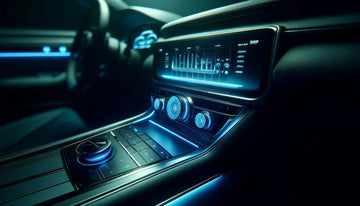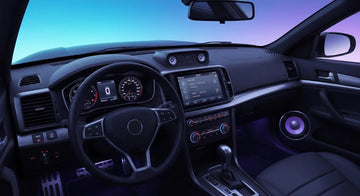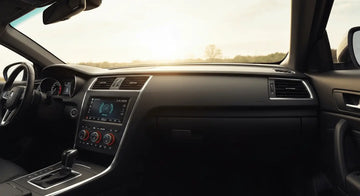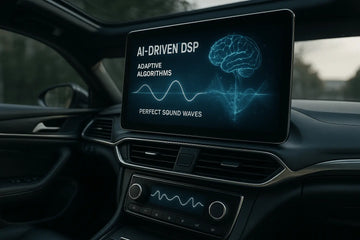Best DSP Car Audio 2025
Transform your car's sound system with our expert-curated digital signal processors. From budget-friendly to audiophile-grade options.
Quick DSP Picker
Answer 3 simple questions to get your perfect DSP recommendation
What's your experience level?
Perfect Match Found!
Complete DSP Comparison
Compare all 7 top DSP models side-by-side
| Model | Price | Channels | Built-in Amp | User Level | Best For | Rating |
|---|---|---|---|---|---|---|

Goldhorn DSPA 810 Pro
Best Overall
|
$1,299 | 10 | Intermediate | Quality & Value |
★★★★★
|
|

Dayton Audio DSP-408
Budget Champion
|
$299 | 8 | Beginner | Budget Build |
★★★★☆
|
|

Goldhorn P5 DSP Ultra
Ultimate Premium
|
$8,000 | 16 | Expert | Competition |
★★★★★
|
|

Goldhorn DSPA 406
Compact Power
|
$899 | 6 | Intermediate | Small Spaces |
★★★★☆
|
Top DSP Recommendations 2025
Hand-picked by our expert team for different needs and budgets

Goldhorn DSPA 810 Pro
- Perfect balance of features and price
- Easy mobile app control
- Excellent sound quality
- Great for intermediate users

Dayton Audio DSP-408
- Unbeatable price point
- Perfect for beginners
- Simple setup process
- Great sound improvement

Goldhorn P5 DSP Ultra
- Ultimate sound quality
- Competition-ready features
- Triple DSP chips
- Hi-Res audio support
Understanding DSP Technology
Master the technical aspects to make informed decisions

Key DSP Functions
Digital Crossovers
Precisely divide frequencies between speakers for optimal performance
Time Alignment
Synchronize sound arrival from all speakers to your ears
31-Band EQ
Fine-tune every frequency for perfect sound balance
Signal Processing
Clean, amplify, and optimize audio signals digitally
DSP Installation Guide
Step-by-step process for perfect DSP installation
1 Planning Phase
- Choose DSP location (under seat, trunk)
- Gather all necessary tools
- Plan wire routing paths
- Read manufacturer instructions
2 Wiring Phase
- Disconnect battery (safety first)
- Install power and ground wires
- Connect input signals from head unit
- Route output cables to amplifiers
3 Setup Phase
- Download tuning software/app
- Configure input channels
- Set crossover points
- Adjust time alignment
4 Tuning Phase
- Use measurement microphone
- Adjust EQ settings
- Fine-tune to personal preference
- Test with various music types
Professional Installation Recommended
While DIY installation is possible, professional installation ensures optimal performance and prevents damage to your vehicle's electrical system. Our certified installers are available nationwide.
Frequently Asked Questions
Get expert answers to common DSP questions
DSPs offer digital precision that analog systems can't match. You get precise frequency control, time alignment, and advanced features like noise cancellation and automatic EQ adjustment. This results in dramatically improved sound quality, better imaging, and the ability to overcome your vehicle's acoustic limitations.
Yes! Even the best amplifier can't overcome poor tuning or acoustic issues in your vehicle. A DSP processes the signal before amplification, correcting problems and optimizing the sound for your specific car's interior. Think of it as the brain that tells your amplifier exactly what to do for perfect sound.
Modern DSPs like the Goldhorn series come with intuitive mobile apps and preset configurations. Start with manufacturer presets, then make small adjustments to taste. Many models include auto-tuning features that do most of the work for you. For advanced tuning, consider professional setup initially, then learn from the settings.
DSP/amplifier combos like the Goldhorn DSPA series save space and simplify installation, perfect for most applications. Standalone DSPs offer more flexibility for complex systems and unlimited amplifier choices but require separate amplifiers. Choose combos for convenience, standalone for maximum customization.
Yes! DSPs work with virtually any vehicle, from classic cars to modern vehicles with factory premium sound systems. Some newer cars with digital audio buses may require additional integration modules, but solutions exist for every application. We provide vehicle-specific installation guides and compatibility information.
Ready to Transform Your Car Audio?
Join thousands of satisfied customers who've upgraded their sound with our expert-recommended DSP systems.
Free Shipping
On orders over $299
Expert Support
Professional installation available
Warranty
Full manufacturer warranty included




